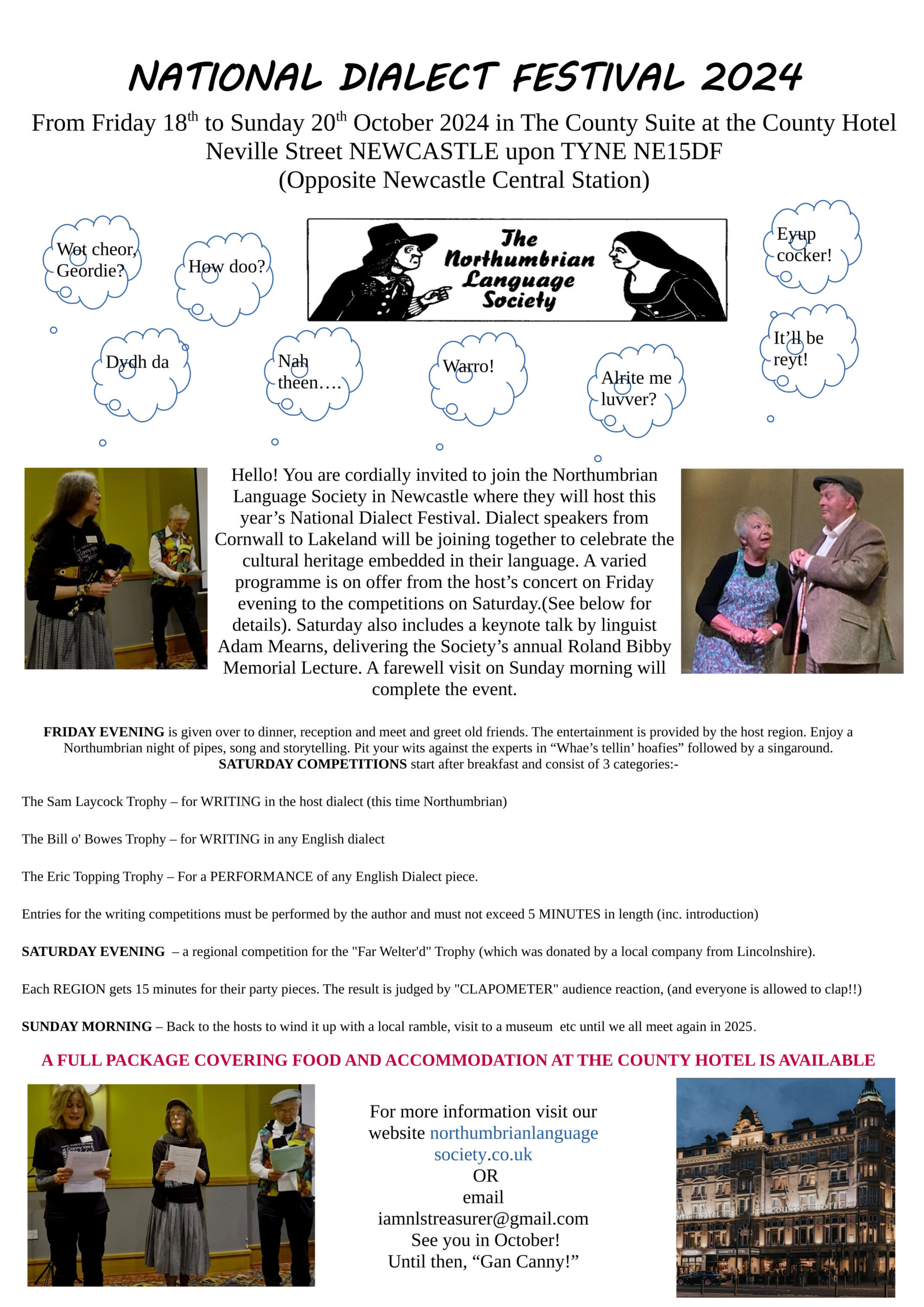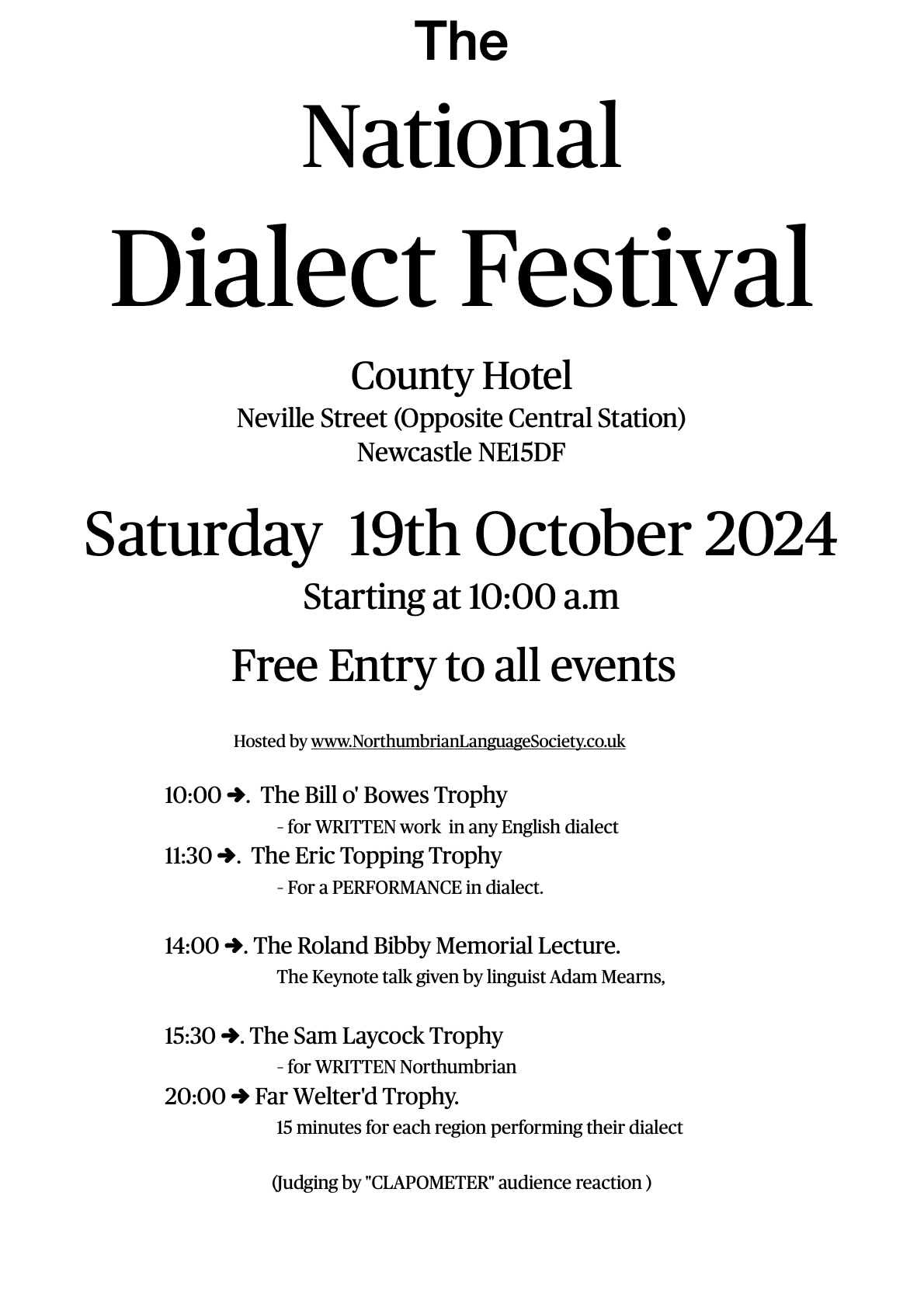Katrina Porteous
Katrina is a poet and historian based on the north Northumberland coast, and much of her work explores local landscape and community.

(photo by Tony Griffiths)
She writes in both standard English and Northumbrian. She is best-known for writing on the Northumberland inshore fishing tradition, and for her drama-length poems for BBC radio, including work about Hadrian’s Wall, Dunstanburgh Castle and Holy Island which feature elements of Northumbrian speech. She has also worked extensively in the past with community groups and schools throughout Northumberland, encouraging the use of local language.
Katrina has been President of the Northumbrian Language Society since 2008.
Her website with full details of her work is at www.katrinaporteous.co.uk
Katrina writes:
It is a huge honour to be President of the NLS, and also a responsibility. I am not a Northumbrian by birth; neither am I an academic scholar of the language. My introduction to it began more than 30 years ago, when I first came to know the fishing families in the village where I live. Over the following decade I was steeped in their language and culture, and responded to it in my poetry, first, by writing ‘conversations’ between my own so-called ‘standard’ English and the fishermen’s speech, and secondly by writing dramatic monologues in the voices of invented characters. I did this for three reasons. The first was that I was aware that the language was not being passed on, at least not in the form in which I heard it. Secondly, I loved the language for its musicality and expressiveness. Words like ‘clarty’, ‘mizzly’ or ‘droomly’ make the listener feel things that standard English does not. Thirdly, I felt that using this language in poetry brings the listener into the presence of a culture and a set of values, not as a museum-piece, but as a living thing – something that anyone can carry around in their heads and in turn pass on.
These days, dramatic monologue is a contested area. Can, should, someone from a ‘majority’ culture, like standard English (if there is such a thing), write in the voice of a ‘minority’ one, like Northumbrian? I would argue emphatically that a writer should be able to write in any voice whatsoever, but that the reception of that voice by the community which it purports to represent is everything. A poem is a communal act. Its sharing and reception constitute a dialogue. If the Northumbrian-speaking community does not recognise itself in a Northumbrian language poem and take it to heart, that poem will simply wither away, and rightly so. That is why the reception of my poetry by local community groups and individuals has always been so important to me, and why being made Fellow, and then President, of the NLS matters so much.
Dialogue is central to this enterprise. A language does not exist in isolation. Neither is it frozen in time. It lives, and evolves, through use and debate. I write from a specific patch of it – a dialect within the Northumbrian language, as spoken within fishing families born in a limited area in the early 20th century. But the Northumbrian Language is far from a single entity. There are many strands – think of Coastal, Coquetdale, North Tyne, Pitmatic and Geordie, among others – and within each strand there are marked geographical, familial and historical variations. ‘Getting it right’ is therefore impossible. There was never a perfect version of north Northumbrian coastal speech, let alone of the Northumbrian Language. What matters, I believe, is the conversation – the attempt, however imperfect, to engage with that language as a living thing.
Anyone with a love of words will delight in this. Go out and find the words that are specific to your place. Keep talking across the generations. Be curious about what things were called in the past. It does not matter where you come from. Love the place where you are now. Once you have found the words, sayings and speech patterns particular to that place, cherish them, and use them.
More details of books by Katrina are here (With audio)
there are further pages of information on the internet…
A wikipedia page is here
Entry on the National Trust website
Poetry Archive entry ( this site includes readings of Katrina’s poems)


